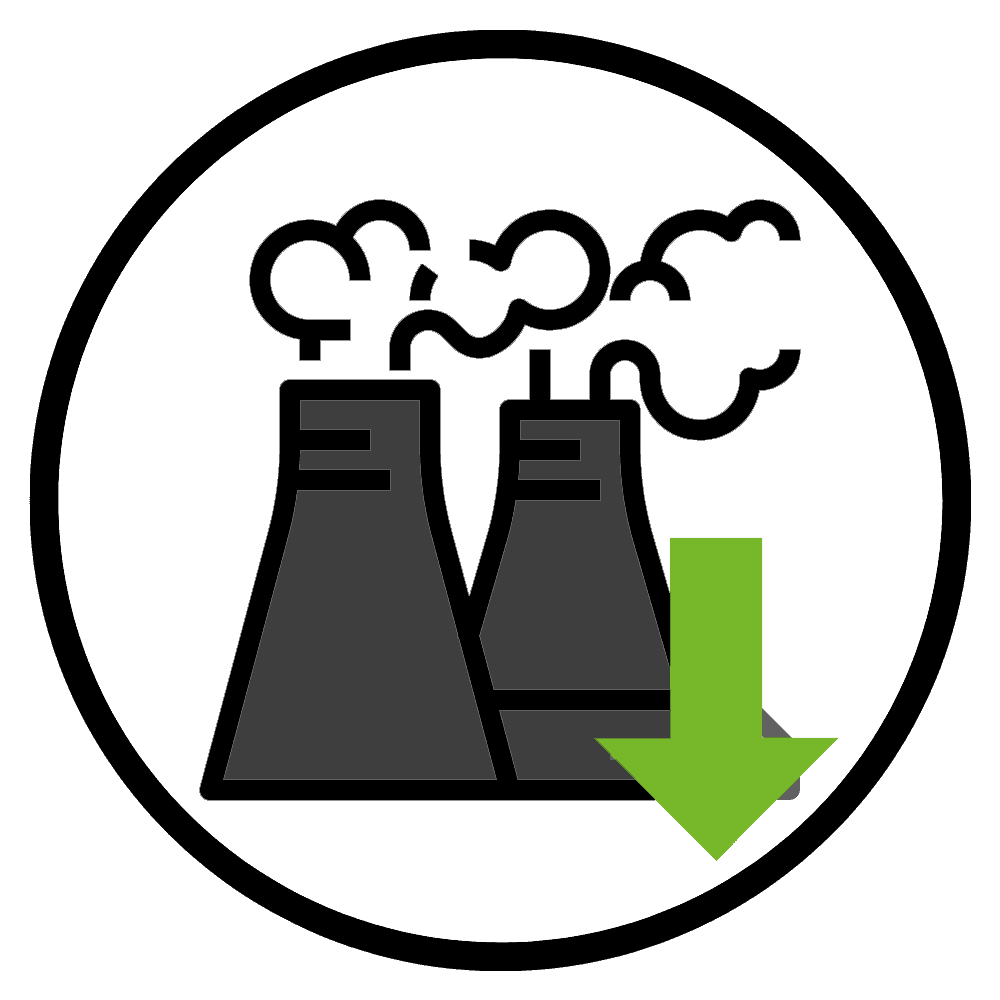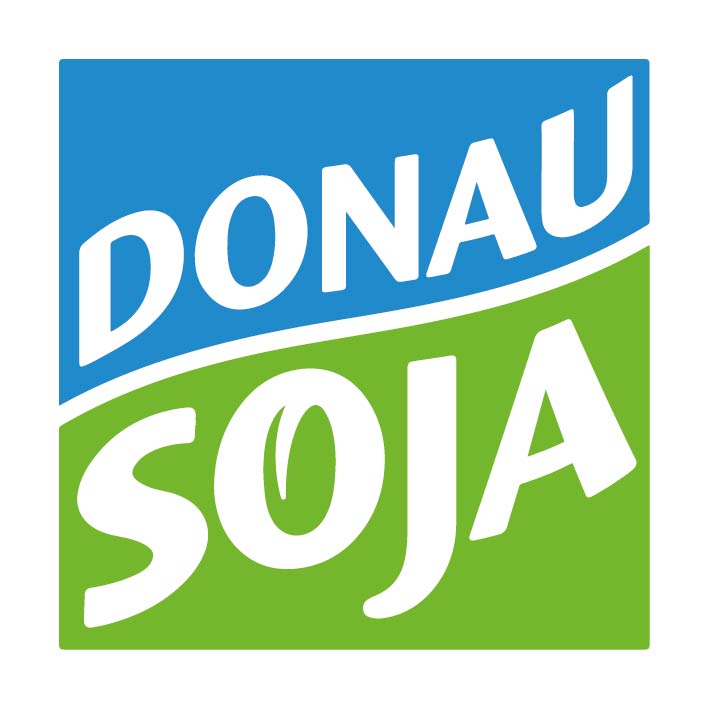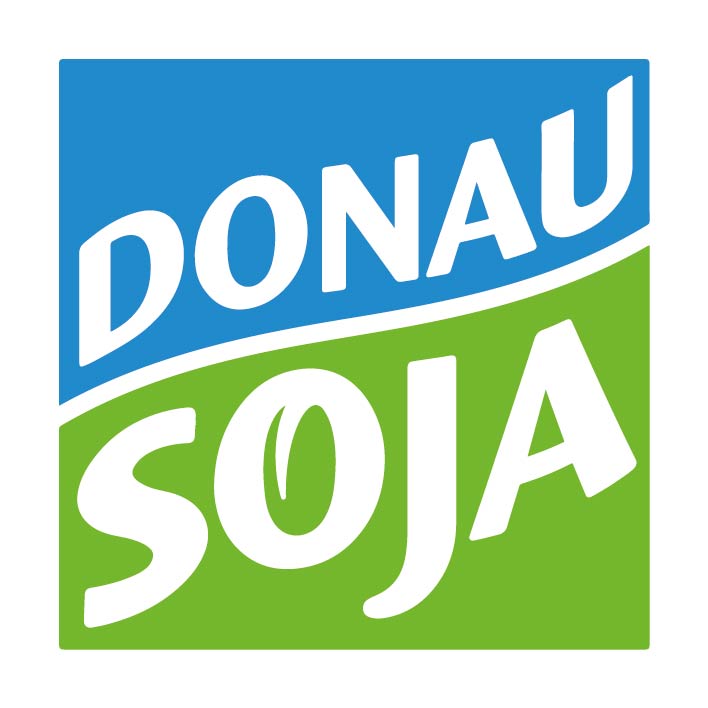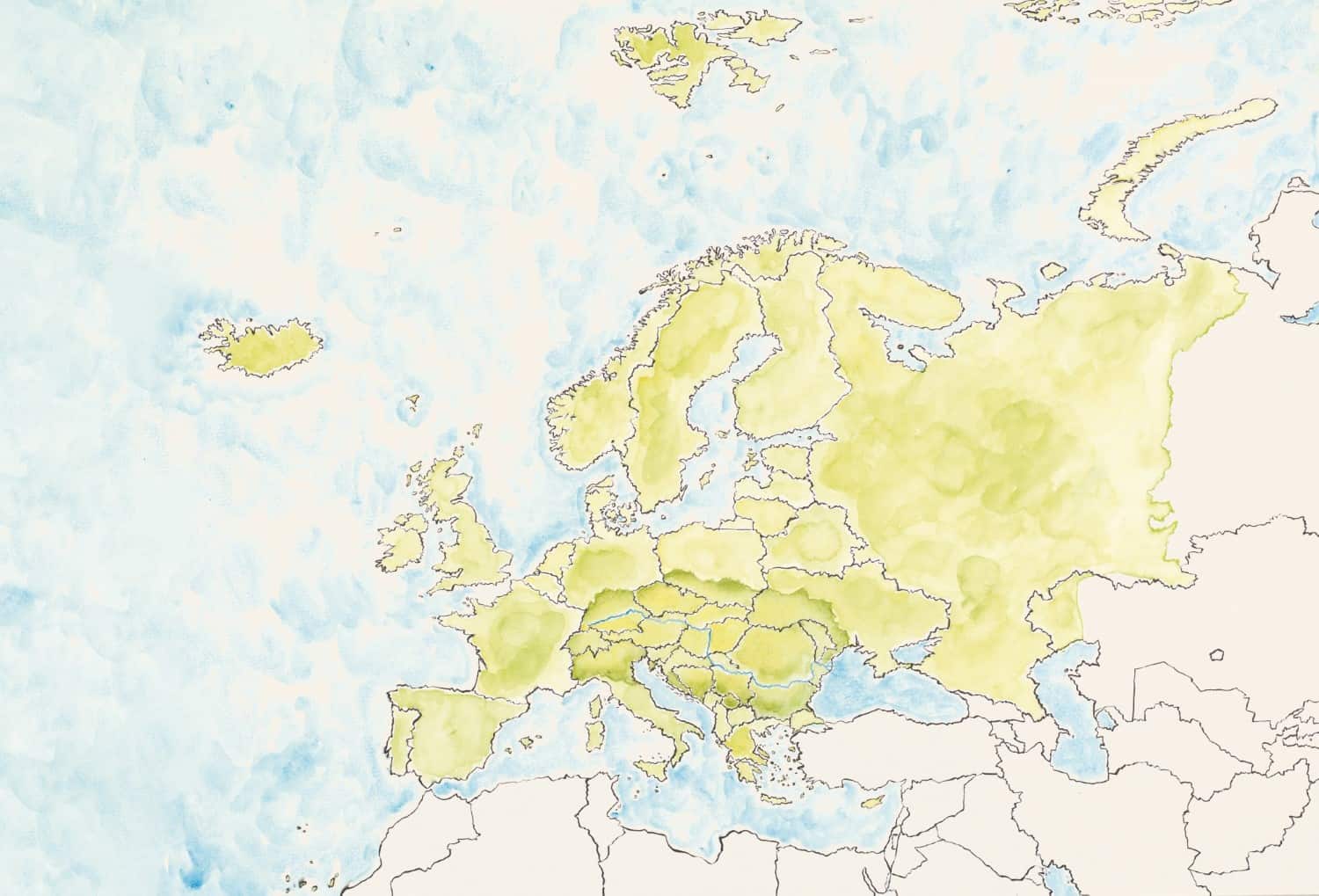The Donau Soja quality programme has been established to promote and propagate the cultivation, processing, and marketing of sustainable, non-GM, origin-controlled quality soya from the Danube region.
The aim is to develop and guarantee a sustainable non-GM protein supply in, and from, Europe.
MAIN CHARACTERISTICS OF DONAU SOJA QUALITY
–
The Donau Soja Standard is based on ten Donau Soja principles of soya bean cultivation. These principles cover Donau Soja’s two essential characteristics of “European origin” and “GM-free status”, along with additional social, environmental and economic aspects. The most important points can be found below.
Danube region origin
Donau Soja is a product of controlled origin and quality. Farmers producing according to the Donau Soja standard are located in the Danube region as delineated by the International Commission for the Protection of the Danube River.
In order to verify the origin of the soya beans, all partners further downstream in the value chain, like traders, collectors or processors, must be in possession of a valid Donau Soja certificate and use the correct declaration on all shipping and product documentation (delivery/weighing note, invoice). Isotope testing is offered as an additional proof of origin for clients, to verify the origin of the soya beans.
Non-GM status
Donau Soja soya beans and soya bean products come from GM-free cultivation using GM-free soya bean varieties listed either in the EU common catalogue of plant varieties or in the respective national catalogue of plant varieties. Donau Soja soya bean farmers are not permitted to grow GM soya beans or any other GM crop. Animal feed with the quality label “Donau Soja” are suitable as feed for livestock, whose products may subsequently be marketed with the quality label “Ohne Gentechnik hergestellt” / “Produced without GMOs”.
The GMO-free status is based on the minimum requirements as set out by the following European GMO-free certification schemes:
- German EG-Gentechnik-Durchführungsgesetz (EGGenTDurchfG), with audits performed as stipulated by the German Verband Lebensmittel ohne Gentechnik (VLOG)
- Austrian Food Codex (Codex Alimentarius Austriacus) and the corresponding Leitfaden zur risikobasierten Kontrolle auf Gentechnikfreiheit (Guideline on the Risk-Based Monitoring of GMO-Free Production)
- Non-GM Danube Region Production and Labelling Standard & Non-GM Danube Region Inspection Standard.
In addition to the option of obtaining a non-GM certification in accordance with the Austrian Food Codex, German VLOG or Non-GM Danube Region Standards, the GMO-free status can also be verified during Donau Soja audits and certifications by checks conducted in compliance with the Non-GM Danube Region Standards, both published in 2015.
Additional environmental and social requirements:
Reduced pesticide use
Donau Soja is based on EU legislation, this means that for Donau Soja cultivation only pesticides whose active ingredients are approved in the EU are permitted – also outside the EU. Additionally, Donau Soja bans the use of substances listed in the Stockholm Convention and the Rotterdam Convention as well as all substances, that the World Health Organization (WHO) has classified as extremely hazardous (List 1a) and highly hazardous (List 1b). Aerial spraying is prohibited in Donau Soja cultivation. Additionally, desiccation (i.e. drying down cultivated plants by means of a chemical agent to accelerate ripening before harvesting) is generally prohibited in Donau Soja cultivation, not only with glyphosate, but also with all other substances such as diquat. With its own Best Practice Trainings, Donau Soja Organisation provides farmers with specific know-how on how to manage without desiccation, for example by selecting suitable varieties.
No-deforestation / No-conversion
Donau Soja soya production complies with a strict no-land-use-change principle (no- deforestation / no-conversion) with a clear cut-off date: Donau Soja soya shall only be cultivated on land dedicated to agricultural use no later than 1 January 2008. Donau Soja soya shall not be grown in national and international nature reserves where the production of crops is prohibited. No new agricultural land shall be developed for Donau Soja soya production if this would result in loss of nature reserves, natural forests, riparian vegetation, wetlands, moors, floodplains or steep slopes. Where such changes have taken place, farmers are obliged to restore protected areas to their former state.

Reduction of greenhouse gas emissions
Donau Soja provides Donau Soja soya bean farmers with information on how to reduce greenhouse gas emissions and increase the sequestration of greenhouse gases. Donau Soja soybean farmers record relevant data, such as yields, seed inputs, fertiliser application, pesticide application and fuel use. They select and implement specific measures to reduce greenhouse gas emissions and increase carbon sequestration.
Compliance with international social and labour rights
The Donau Soja standard requires farmers to comply with EU and international regulations on labour and social rights (ILO conventions). This ensures fair working conditions, including the elimination of all forms of forced or compulsory labour; the effective abolition of child labour; the elimination of discrimination in respect to employment and occupation; freedom of association; decent wages; and secure labour conditions.
Three-staged inspection system
Donau Soja audits and certification are carried out by independent external certification bodies accredited in accordance with ISO/IEC 17065. To date, 18 certification bodies have been authorised by Donau Soja Organisation to conduct inspections and issue certification. This is part of a three-staged inspection system that builds on a risk-based inspection frequency. Stage one is self-monitoring within the companies, and obligatory quality assurance schemes during the processing stages. Independent certification bodies perform audits on site, issuing valid Donau Soja certificates only to compliant companies. Additionally, and on a regular basis, Donau Soja Organisation performs integrity audits carried out by trained staff, or in cooperation with external certification bodies or external experts.
Traceability throughout the supply chain
Donau Soja certification ensures that certified products are segregated from non-certified sources at each stage of the supply chain. For soya products, such as soya in the form of food or drinks or processed soya beans as feed, this is achieved through separation and correct declaration, both throughout the company and at every step of the supply chain. To ensure the traceability of raw soya beans, an IT-based lot certification system is in use when trading and transporting Donau Soja soya beans from the primary agricultural collector to the primary processor. Certificate of traceability may additionally be issued by the primary processor to the marketer. The traceability system comprises all certified companies registered in the Donau Soja IT database, as well as our partners who are listed on our website as certified partners.
THE COUNTRIES AND REGIONS OF ORIGIN FOR DONAU SOJA ARE DEFINED IN BOTH POLITICAL AND GEOGRAPHICAL TERMS
–
Donau Soja soya cultivation areas are located in the following countries and regions:
Austria
Bulgaria
Croatia
Germany (Bavaria, Baden-Wuerttemberg)
Greece
Hungary
Italy (Trentino Alto Adige, Friuli Venezia Giulia, Veneto, Emilia-Romagna, Lombardia, Piemont, Vallée d‘Aoste)
Moldova
Poland (Dolnoslaskie, Opolskie, Slaskie, Swietokrzyskie, Podkarpackie, Malopolske)
Romania
Slovak Republic
Slovenia
Switzerland
Ukraine (Uschgorod, Tschernowzy, Winniza, Odessa, Lwow, Ternopol, Chmelnizkij, Iwano-Frankovsk)
You can find the Donau Soja Standard in the DOWNLOAD section


